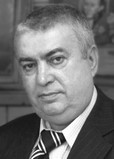New approaches to standards for students’ self-assessment of physical fitness level based on freedom of choice
Фотографии:
ˑ:
Dr.Hab., Professor R.M. Kadyrov1
D.S. Savelyev2
A.V. Zaitsev2
1Military Institute of Physical Culture, St. Petersburg
2Saint-Petersburg Mining University, Saint-Petersburg
Objective of the study was to scientifically substantiate the standards for students' self-rating of own physical fitness level.
Methods and structure of the study. We proposed a methodology of development of the standards for students’ self-assessment of own physical fitness level based on the independently established gradations of physical progress rates. The study involved 75 students.
Results of the study and conclusions. The questionnaire survey revealed that students prefer freedom to choose tests and prioritize simply structured tests. To a large extent, this is due to the possibility to improve one type of physical activity only and perform control exercises that do not require any special skills.
The freely chosen and mandatory test rates indicated a significantly higher level of students’ readiness for the subjectively selected control exercises.
The authors conclude that preparation for control exercises, as provided by the academic physical education curriculum, is significantly limited by the lack of both class time and appropriate material and technical base outside the educational institution. At the same time, students need to select tests, during which it would be possible to achieve the necessary results in control exercises, maintain health and the ability to perform the independently selected tests under any conditions. Consequently, having initially made a subjective choice of specific tests, it is advisable to further consider formal features in order to study their metrological properties in the future. The above methodological approach enables to develop preliminary regulatory requirements to be used as the criteria for evaluation of the level of physical development and health status.
Keywords: standard, self-assessment, physical activity, criteria for evaluation.
References
- Blakhin G.N., Kadyrov R.M. Modeli v teorii fizicheskoy podgotovki [Modeling in physical education theory]. St. Petersburg: Inkeria publ., 2013. 144 p.
- Getman V.D., Kadyrov R.M. Model sistemyi proverki i otsenki fizicheskoy podgotovlennosti studentov [Students’ physical fitness rating test model]. Teoriya i praktika fiz. kultury. 2018. no. 9. pp. 45-47.
- Dementiev K.N., Mironova O.V., Pristav O.V., Grigoriev V.I. Proektnye vozmozhnosti fizicheskoy kultury studentov v novykh usloviyakh [Design capabilities of students' physical education in new conditions]. Teoriya i praktika fiz. kultury. 2015. no. 10.pp. 94-96.
- Dmitriev G.G., Kadyrov R.M., Blakhin G.N. Organizatsionno-upravlencheskaya deyatelnost spetsialistov po fizicheskoy podgotovke [Organizational and managerial activities of specialists in physical training]. St.. Petersburg: Inkeri publ., 2016.166 p.
- Kadyrov R.M., Mikhail I.I. Modelirovanie ob'ema i intensivnosti nagruzok v protsesse fizicheskoy trenirovki [Physical load volume and intensity modelling in training process]. Teoriya i praktika fiz. kultury, 2016, no. 8, pp. 72-75.
- Panchenko I.A., Grigoriev V.I. Kompleks GTO kak faktor povyisheniya effektivnosti upravleniya fizicheskoy podgotovkoy studenktov [GTO Complex as a basis for academic physical education efficiency improvement]. Teoriya i praktika fiz. kultury. 2017. no. 5. pp. 23-25.
- Pristav O.V., Dementiev K.N., Mironova O.V. Fitnes-tehnologii kak element obespecheniya konkurentosposobnosti fizicheskoy kulturyi studentov [Fitness technology as element of ensuring competitiveness of students' physical education]. Fizicheskaya kultura, sport i zdorove. 2016. no. 27. pp. 8-10.
- Rudenko G.V., Bolotin A.E. Organizatsionno-pedagogicheskie usloviya, neobkhodimye dlya vnedreniya novogo kompleksa GTO v sistemu fizicheskogo vospitaniya naseleniya Rossii [Organizational educational conditions needed to implement new GTO complex into physical education of Russian people]. Teoriya i praktika fiz. kultury, 2015, no. 7, pp. 97-99.



 Журнал "THEORY AND PRACTICE
Журнал "THEORY AND PRACTICE